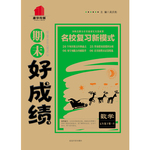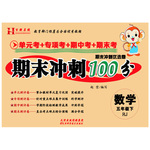题目内容
I met Billy the last summer before college. He was handsome and his irreverence(玩世不恭) was to me. We liked each other the first instant we met. , I was a straight A student and my parents had high hopes for me to an Ivy League (常春藤联盟) school. Billy did not concentrate all his attention his study and school life. However, we were in love --- so teenager love. I still remember we had a plan for prom(舞会). It was understood that we had about where we would dance and drink and party together.
This meant one thing to my parents---panic. And it grew as the letters began to roll in. Of the eleven schools I applied to, nine accepted me. And one of them was Brown University---the Ivy League in 1770 in historic Providence, Rhode Island.
There was no that I was drawn to Brown, but Billy (who had joined the army) was down south and I had offers for me there, too. I was torn between my love for him and my family .
One week the start of school, my mother had a talk with me. She said I was eighteen years old and I had a to make--- one that went beyond the choice of to attend university.
In August, I and drove north to Providence. It took several months to that my life was moving on in a way that was completely different from Billy’s. Brown changed my life, opening doors and giving me the I now use to think, to learn and to write. Life is always about it seems, and the older I get, the more I understand this. Still, there are times when I think of Billy because he taught me about love.
1.A. confusing B. disturbing C. appealing D. amusing
2.A. Unfortunately B. Actually C. Luckily D. Originally
3.A. leave B. start C. finish D. attend
4.A. in B. at C. on D. from
5.A. special B. crazy C. wrong D. normal
6.A. talked B. looked C. lied D. argued
7.A. description B. rejection C. application D. acceptance
8.A. constructed B. assessed C. assisted D. informed
9.A. point B. use C. doubt D. need
10.A. left B. sent C. exposed D. employed
11.A. waiting B. asking C. hoping D. searching
12.A. tradition B. connection C. reputation D. expectation
13.A. before B. after C. at D. since
14.A. plan B. decision C. rule D. promise
15.A. out B. away C. far D. deep
16.A. when B. where C. whether D. how
17.A. got up B. packed up C. looked up D. turned up
18.A. foresee B. imagine C. realize D. consider
19.A. chances B. position C. equipment D. tools
20.A. surprises B. adventures C. opportunities D. choices
1.C
2.B
3.D
4.C
5.B
6.C
7.D
8.A
9.C
10.B
11.A
12.D
13.A
14.B
15.C
16.B
17.B
18.C
19.D
20.D
【解析】
试题分析:文章讲述了一个关于抉择的故事。作者和Billy在高中相爱,作者学习很好,而Billy却显得有些玩世不恭。后来作者考上了位于北方的一所常春藤大学,而Billy去了南方参军。作者想跟Billy在一起,却又不想辜负父母的期望,这让她很矛盾。作者的妈妈教会了她做出选择,作者最后选择了去布朗大学学习,她不会忘记Billy。
1.根据下一句“We liked each other the first instant we met.”可知,Billy对作者有吸引力,A令人困惑的;B令人不安的;C有吸引力的;D有趣的,好笑的。故选C。
2. , I was a straight A student,Billy玩世不恭,而实际上,作者是一个尖子生,A不幸的是;B实际上;C幸运的是;D起初。故选B。
3.my parents had high hopes for me to an Ivy League (常春藤联盟) school作者的父母对作者进入一所常春藤学校抱有很大的期望,A离开;B开始;C结束;D上(学),参加。故选D。
4.Billy did not concentrate all his attention his study比利没有把全部的注意力放在学习上,concentrate...on...把......集中在......上,故选C。
5.However, we were in love --- so teenager love.然而作者他们坠入了爱河--非常疯狂的年轻人的恋爱。A特殊的;B疯狂的;C错误的;D正常的。故选B。
6.It was understood that we had about where we would dance...,根据下一句“This meant one thing to my parents---panic.”可知,作者和比利都对这个舞会的事情跟父母撒了谎,A谈论;B看;C撒谎;D争论。故选C。
7.And it grew as the letters began to roll in. Of the eleven schools I applied to, nine accepted me.随着录取信一封接一封到来,紧张感也在增加。A描述;B拒绝;C申请;D接受。故选D。
8.the Ivy League in 1770常春藤联盟建于1770年,在罗德岛州的普罗维登斯,A建设;B评估;C帮助;D通知。故选A。
9.There was no that I was drawn to Brown,毫无疑问的是,作者选择了布朗大学,A观点;B用处;C疑问;D需要。故选C。
10.but Billy (who had joined the army) was down south 比利参军后,被派往南方,A遗留;B派遣;C暴露;D雇佣。故选B。
11.I had offers for me there, too作者也有大学的通知书在等着她,A等待;B询问;C希望;D寻找。故选A。
12.I was torn between my love for him and my family .作者在对比利的爱和家人的期望之间难以抉择,A传统;B联系;C名誉;D期望。故选D。
13.One week the start of school, my mother had a talk with me.大学开学的前一周,作者的妈妈找她谈话,A在......之前;B在......之后;C在;D自从。故选A。
14.I was eighteen years old and I had a to make作者已经18岁了,该做出一个决定了,make a decision做决定,A计划;B决定;C规则;D承诺。故选B。
15.one that went beyond the choice of to attend university这个决定远远超过了选择上大学的地方,go far beyond远远超过,故选C。
16.作者在Billy和家人之间难以抉择,矛盾的是在哪里上大学,故选B。
17.In August, I and drove north to Providence.八月份,作者收拾行李,开车去往北部的普罗维登斯,A起床;B打点行装;C查字典;D调大,出现。故选B。
18.It took several months to that my life was moving on in a way that was completely different from Billy’s.作者过了几个月才意识到她的生活在朝着和比利的完全不同的方向前进,A预见;B想象;C意识到;D考虑。故选C。
19.giving me the I now use to think, to learn and to write给作者以思考、学习和写作的知识,A机会;B职位;C设备,(工作必需的)知识;D工具。故选D。
20.Life is always about it seems, and the older I get, the more I understand this.生活总是意味着选择,作者越长大,对此的认识就越深刻,A惊喜;B冒险;C机会;D选择,抉择。故选D。
考点:故事类短文阅读

 期末好成绩系列答案
期末好成绩系列答案 99加1领先期末特训卷系列答案
99加1领先期末特训卷系列答案 百强名校期末冲刺100分系列答案
百强名校期末冲刺100分系列答案
| |||||||||||||||||||||||||||||||||||||||||||||||||||||||||||||||||||||||||||||||||||||||||||||||||||||||||||||||||||||||||||||||||||||||||||||||||||||||||||||||||||||||||||||||||||||||||||||||||||||||||||||||||||||||||||||||||||||||||||||||||||||||||||||||||||||||||||||||||||||||||||
I met the old man at a cafe. “Did you hear the radio news yesterday?” he asked me. “No,” I replied. “Anything exciting?”“Exciting? NO! Something very sad. A group of hungry dogs killed and ate my best friend.”?
“Oh, dear!” I cried. “How did it happen?”“He was working on the hillside when the dogs attacked him. When he didn't return, I went to the hillside and found…”“His body?” I asked. The old fellow drank half of his coffee. “No. I told you they were hungry dogs, didn't I? The big bones were lying every where. But they found this.” He pushed open a match box he was holding in his hand. In it was a man's thumb, lying on some white bloody material.?
“This is my friend's right thumb. The dogs ate the rest of him”. The old man began to cry. He finished his coffee quickly and left the cafe. I drank mine and called the waiter. “I'll pay the gentleman's bill. His poor friend—how terrible!”“You've heard the news?” The waiter laughed. “Sure. There's a hole in the bottom of the match box. He put his own thumb through the hole. The blood is red ink, I believe. Is the story worth a cup of coffee, sir?”“But he held the box in his right hand.”“Yes, but listeners look into the box. They just can't take their sight off that terrible thing.”“And when he tells the story, he gets free cup of coffee!” I said, laughing. “Yes, sir, but only from strangers who come to this town, and, of course, he does us no harm!”?
【小题1】 We can learn from this passage ________.?
| A.the writer came to the cafe for the first time? |
| B.the old man made a living by telling jokes in the cafe? |
| C.the writer had known about the old man before? |
| D.what had happened to his best friend made the old man mad? |
| A.couldn't help laughing immediately? | B.showed great mercy upon him? |
| C.didn't believe him at all? | D.bought the old man another cup of coffee? |
| A.the right thumb of his best friend? |
| B.the thumb he stole from the dead body of an unknown person? |
| C.something made of bloody white materials? |
| D.his own right thumb? |
| A.he was nobody but the best friend of the old man? |
| B.the old man wouldn't pay for his coffee if he did ? |
| C.the waiter hadn't seen through the old man's trick? |
| D.the old man helped the cafe in some way? |
| A.The writer refused to pay the old man's bill.? |
| B.The writer decided to make the trick known to the public.? |
| C.More strangers would hear the old man's story.? |
| D.The old man wouldn't visit the cafe any more. |
I met the old man at a cafe. “Did you hear the radio news yesterday?” he asked me. “No,” I replied. “Anything exciting?”“Exciting? NO! Something very sad. A group of hungry dogs killed and ate my best friend.”?
“Oh, dear!” I cried. “How did it happen?”“He was working on the hillside when the dogs attacked him. When he didn't return, I went to the hillside and found…”“His body?” I asked. The old fellow drank half of his coffee. “No. I told you they were hungry dogs, didn't I? The big bones were lying every where. But they found this.” He pushed open a match box he was holding in his hand. In it was a man's thumb, lying on some white bloody material.?
“This is my friend's right thumb. The dogs ate the rest of him”. The old man began to cry. He finished his coffee quickly and left the cafe. I drank mine and called the waiter. “I'll pay the gentleman's bill. His poor friend—how terrible!”“You've heard the news?” The waiter laughed. “Sure. There's a hole in the bottom of the match box. He put his own thumb through the hole. The blood is red ink, I believe. Is the story worth a cup of coffee, sir?”“But he held the box in his right hand.”“Yes, but listeners look into the box. They just can't take their sight off that terrible thing.”“And when he tells the story, he gets free cup of coffee!” I said, laughing. “Yes, sir, but only from strangers who come to this town, and, of course, he does us no harm!”?
1. We can learn from this passage ________.?
|
A.the writer came to the cafe for the first time? |
|
B.the old man made a living by telling jokes in the cafe? |
|
C.the writer had known about the old man before? |
|
D.what had happened to his best friend made the old man mad? |
2. Having heard the old man's story, the writer _______ .?
|
A.couldn't help laughing immediately? |
B.showed great mercy upon him? |
|
C.didn't believe him at all? |
D.bought the old man another cup of coffee? |
3. It turned out that the thumb in the match box was actually __________.?
|
A.the right thumb of his best friend? |
|
B.the thumb he stole from the dead body of an unknown person? |
|
C.something made of bloody white materials? |
|
D.his own right thumb? |
4.The waiter hadn't let out the truth of the old man's story earlier because _______ .
|
A.he was nobody but the best friend of the old man? |
|
B.the old man wouldn't pay for his coffee if he did ? |
|
C.the waiter hadn't seen through the old man's trick? |
|
D.the old man helped the cafe in some way? |
5. As suggested by the passage, what might happen in the end? ??
|
A.The writer refused to pay the old man's bill.? |
|
B.The writer decided to make the trick known to the public.? |
|
C.More strangers would hear the old man's story.? |
|
D.The old man wouldn't visit the cafe any more. |